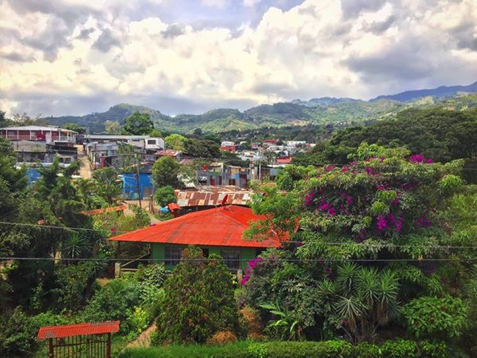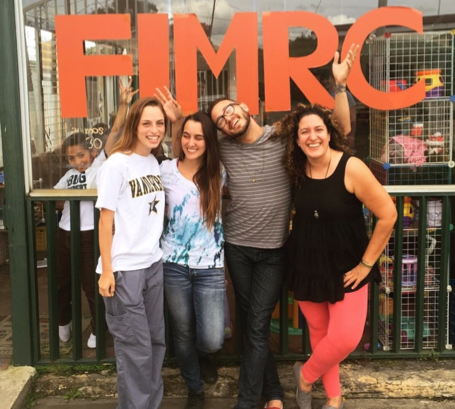Summer Archives
Megan NocitaSan Jose, Costa Rica - Foundation for International Medical Relief of Children (FIMRC) - Project Alajuelita |
 Pura Vida
Pura Vida
I spent my summer in San José, Costa Rica at a clinic run by Foundation for International Medical Relief of Children (FIMRC). We served a community of impoverished Costa Ricans and Nicaraguan immigrants, and I was able to contribute to projects such as healthcare education and development of a volunteer manual. However, some of the most important lessons I learned were not medical.
“Pura vida,” meaning “pure life,” is the motto in Costa Rica. I was skeptical of the catchy phrase that was scribbled on every receipt, cheered at every outdoor excursion, and printed on every t-shirt. Was it meant to entertain tourists? Did I look silly even repeating it back to our overly-energetic guides? I struggled with the idea of coming off as a naïve American or a person trying too hard to fit in. I fought the culture that welcomed and surrounded me simply because I did not understand how genuine it was.
One day, my supervisor pulled me aside while I was organizing our pharmacy; I was in the process of creating new dry-erase labels that we could use to keep better track of our inventory. He told me I looked stressed, and he said there was no reason to rush. He explained that “pura vida” sometimes means taking all the time I need to complete the best possible work. He told me Costa Ricans believe in working to live instead of living to work. We work at the clinic so that we can live, and so that our patients can live, too.

Another day, a cancelled appointment gave me a chance to have a conversation with the clinic’s doctor about Costa Rican attitudes toward immigrants. I expected this topic to be familiar, with discussion of a failing economy, a struggling healthcare system, and a rise in crime rates. These perceptions are, after all, taking such horrific control of politics and attitudes toward immigrants in America. However, the doctor explained to me that “pura vida” once again applied. She told me about the important jobs immigrants do. She spoke with great respect for the sacrifices immigrant families make to survive in a country that is not home, and she told me with the utmost sincerity that she and her coworkers were thankful for immigrants. I learned quickly that Costa Ricans do not just tolerate immigrants. Instead, most Costa Ricans believe immigrants are important and necessary.
It took me a while, but I eventually realized that “pura vida” is truly an important and wonderful part of Costa Rican culture. The idea of striving for a pure and better life applies to everything. Immigrants move to a country to live. People work to live. Doctors treat patients so they can live. “Pura vida” is not something I will leave in Costa Rica. It means I will do everything in my power to live a life that is satisfying and good, while making the same possible for others. We are all just trying to live, and high-quality work, respect, and appreciation for others can go a long way.
For more, please visit Foundation for International Medical Relief of Children (FIMRC).
